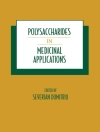Within the past two generations alone, child and adolescent obesity has more than doubled for some age groups and tripled for others. Consequently, the extraordinary number of school-age children now being diagnosed with what were once considered adult-onset disorders – hypertension, type 2 diabetes, high cholesterol, and related cardio-pulmonary conditions – has catapulted pediatric obesity to the forefront of national attention. Yet even as recognition grows, reliable, scientifically tested information and methods often get lost in the media crush of quick fixes and hyped-up news stories.
Now, in one comprehensive, easy-to-access volume, the Handbook of Childhood and Adolescent Obesity reveals the scope of the problem in terms of its psychological burden, its health consequences, and the available prevention and treatment options with the most current empirical and clinical knowledge available. This volume provides readers not only raw data, but also a framework for translating findings into effective, efficient practice – assessment, treatment, and prevention. This volume:
- Emphasizes developmental considerations – the specific information most relevant to toddlers, school-age children, and adolescents.
- Examines sociocultural and economic risk factors and their attendant treatment issues.
- Addresses the particular challenges of treating overweight children with psychiatric comorbidities.
- Discusses weight management intervention strategies in home, school, and community settings.
- Outlines model intervention programs for overweight/obese children and youth.
- Features special chapters on emerging topics of interest, including behavioral genetics, binge eating, technology-based approaches to weight control, and the concept of the obesigenic environment.
The Handbook of Childhood and Adolescent Obesity is a vital reference for child psychologists and psychiatrists as well as school and counseling psychologists, social workers, educators, and public health and medical professionals.
Daftar Isi
Prevalence, Correlates, And Consequences.- Pediatric Obesity: Trends and Epidemiology.- Health Consequences of Obesity in Children and Adolescents.- Psychosocial Factors Related to Obesity in Children and Adolescents.- Binge Eating Among Children and Adolescents.- Assessment Of Pediatric Obesity And Contributing Conditions.- The Definition and Assessment of Childhood Overweight: A Developmental Perspective.- Diet Assessment in Children and Adolescents.- Development of Eating Patterns.- Risk Factors For Obesity In Children And Youth.- Physiological Mechanisms Impacting Weight Regulation.- Socioeconomic Factors Related to Obesity in Children and Adolescents.- The Obesogenic Environment.- Application of Genetic Epidemiology to Understanding Pediatric Obesity.- Interventions.- Developmental Considerations in the Prevention of Pediatric Obesity.- Evidence-Based Treatments for Childhood Obesity.- Empirically Supported Treatment of Overweight Adolescents.- Intensive Therapies for the Treatment of Pediatric Obesity.- Residential Treatment Programs for Pediatric Obesity.- Model Treatment Programs.- Cultural Considerations in the Development of Pediatric Weight Management Interventions.- Prevention of Pediatric Obesity.- Prevention of Childhood Obesity in Childcare Settings.- Obesity Prevention Programs for School-aged Children and Adolescents.- Preventing Childhood Obesity through Collaborative Public Health Action in Communities.- Future Directions.- The Role of Public Policy in Addressing the Pediatric Obesity Epidemic.- Application of Innovative Technologies in the Prevention and Treatment of Overweight in Children and Adolescents.- Motivational Interviewing and Pediatric Obesity.- Treatment of Children and Adolescents with Obesity and Comorbid Psychiatric Conditions.- Application of Empirically Supported Treatments to Clinical Settings.- Future Directions in Pediatric Obesity Prevention and Intervention: Research and Practice.
Tentang Penulis
Elissa Jelalian, Ph.D. is an associate professor of Psychiatry and Human Behavior at Brown Medical School. She received her Ph D in clinical psychology from Miami University of Ohio and completed an internship in child psychology at the University of Rochester Medical School. She subsequently pursued a postdoctoral fellowship in pediatric psychology at Rhode Island Hospital and Brown Medical School, where she remained in a faculty position. Dr. Jelalian is the recipient of grants from NHLBI and NIDDK evaluating weight control interventions for overweight adolescents. She has published in the areas of pediatric weight control, risk-taking and injury in adolescents, and nutrition in children with cystic fibrosis. Dr. Jelalian serves on the editorial board of the Journal of Pediatric Psychology.
Ric G. Steele, Ph.D., ABPP, is an Associate Professor of Psychology and Applied Behavioral Science at the University of Kansas, in the Clinical Child Psychology Program. He earned his doctorate from the University of Georgia in clinical psychology, with a specialization in clinical child psychology, completed a clinical internship at the University of Tennessee (Memphis) Professional Psychology Internship Consortium, and completed a Post-Doctoral Fellowship at the St. Jude Children’s Research Hospital (Memphis, TN). Dr. Steele is an associate editor for the Journal of Child and Family Studies, and is on the editorial boards of the Journal of Clinical Child and Adolescent Psychology, the Journal of Pediatric Psychology, and Professional Psychology: Research and Practice. He has published more than 45 peer-reviewed articles on topics in clinical child and pediatric psychology, and has recently co-edited the Handbook of Mental Health Services for Children, Adolescents, and Families and the Handbook of Evidence Based Therapies for Children and Adolescents. Dr. Steele’s federally-funded research is concerned with evaluation of family-based approaches to child and adolescent weight management.












